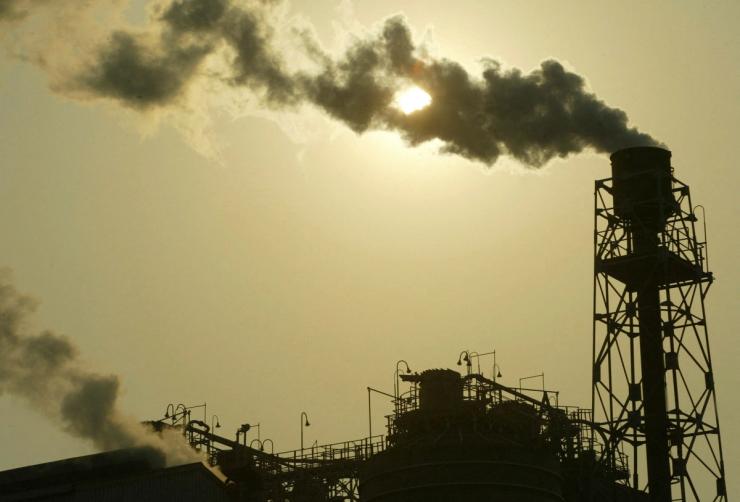The News
Greenhouse gas concentrations in the atmosphere reached record highs in 2023, creating the conditions for rising temperatures in years to come, a new report from the UN’s World Meteorological Organization warned.
“Another year. Another record. This should set alarm bells ringing among decision makers. We are clearly off track to meet the Paris Agreement goal,” WMO head Celeste Saulo said Monday.
“Stubbornly” high fossil fuel emissions and surging vegetation fires, paired with a possible reduction in absorption of carbon dioxide from forests, are to blame for the record levels.
The UN also warned that current climate targets around the world, even if met, would have minimal impact in reducing the worst consequences of global warming, which would “cripple economies” and “wreck billions of lives.” The UN climate chief said the commitments “fall miles short” of the 43% reduction in emissions that is needed by 2030 to limit global warming to 1.5 degrees Celsius.
SIGNALS
Staying under the 1.5 degrees Celsius goal may not be feasible
Staying below the 2015 goal of limiting global warming to 1.5 degrees Celsius above pre-industrial levels may be “theoretically possible,” a sustainability researcher told The New York Times, but it’s not “feasible.” Governments’ current pledges to counteract global warming haven’t kept up with the pace of growing emissions, and this century will likely see “catastrophic” temperature increase of 2.6 to 3.1 degrees, with “virtually zero” chance of staying within the 1.5 degree target, another UN report warned. But giving up on reducing emissions is not an option, the executive director of the UN Environment Program told The Times: “Every fraction of a degree avoided counts in terms of lives saved, economies protected, damages avoided, biodiversity conserved.”
Warnings put pressure for ‘ambitious agreement’ at upcoming COP29
The UN’s warnings adds pressure on global leaders to sign off on a more
ambitious agreement at next month’s COP29 summit in Azerbaijan, Sky News reported. A key issue up for discussion will be increasing funds for developing nations to help accelerate their green transition: Globally, climate finance would need to go up to $9 trillion a year by 2030 from $1.3 trillion in 2021-2022 to meet climate targets. But poorer nations have argued they will be unable to meet their emissions targets without more cash from richer, polluting countries, Sky News wrote.
As US election approaches, decarbonization is low on the agenda
As the second largest emitter of greenhouse gases, the US’ decarbonization progress could be a driver for other countries, The New Statesman noted. But as the presidential election looms, neither candidate has made decarbonization a priority, Vox argued: Donald Trump, “an avowed friend of the fossil fuel industry,” has taken a “drill, baby, drill” approach. Meanwhile, Kamala Harris — who in 2019 ran on a climate-forward platform that included banning fracking — has recently celebrated the record levels of fossil fuel production under the Biden administration, likely in an effort to appeal to voters in the swing state of Pennsylvania. A Harris victory maybe more encouraging from a climate perspective, but the task of reducing emissions will be “thankless,” The New Statesman wrote.



